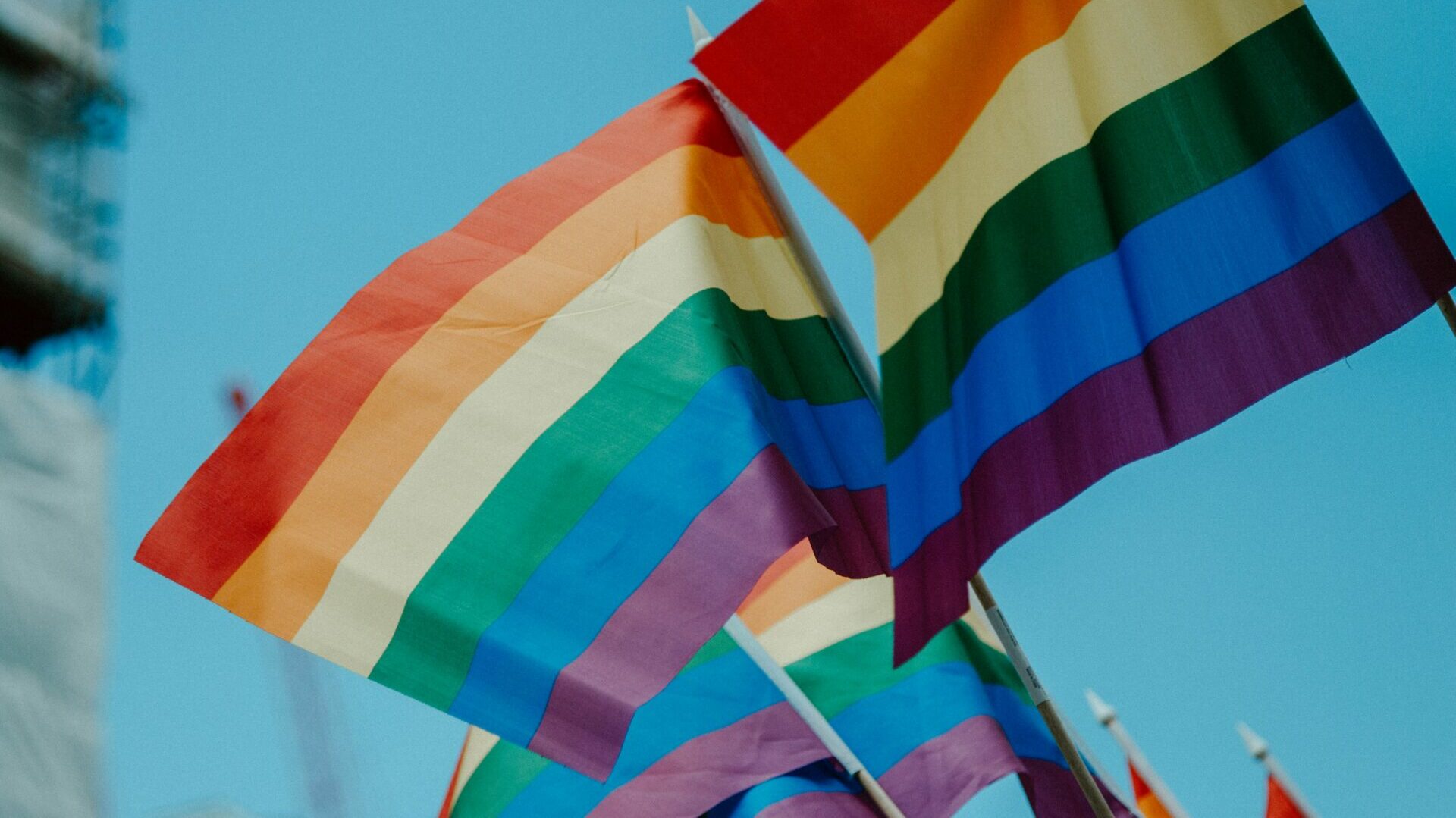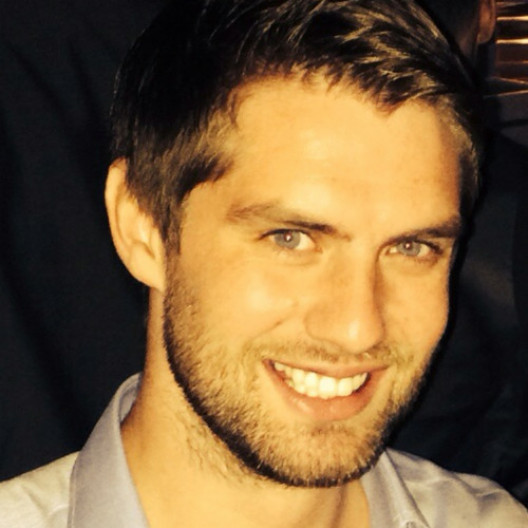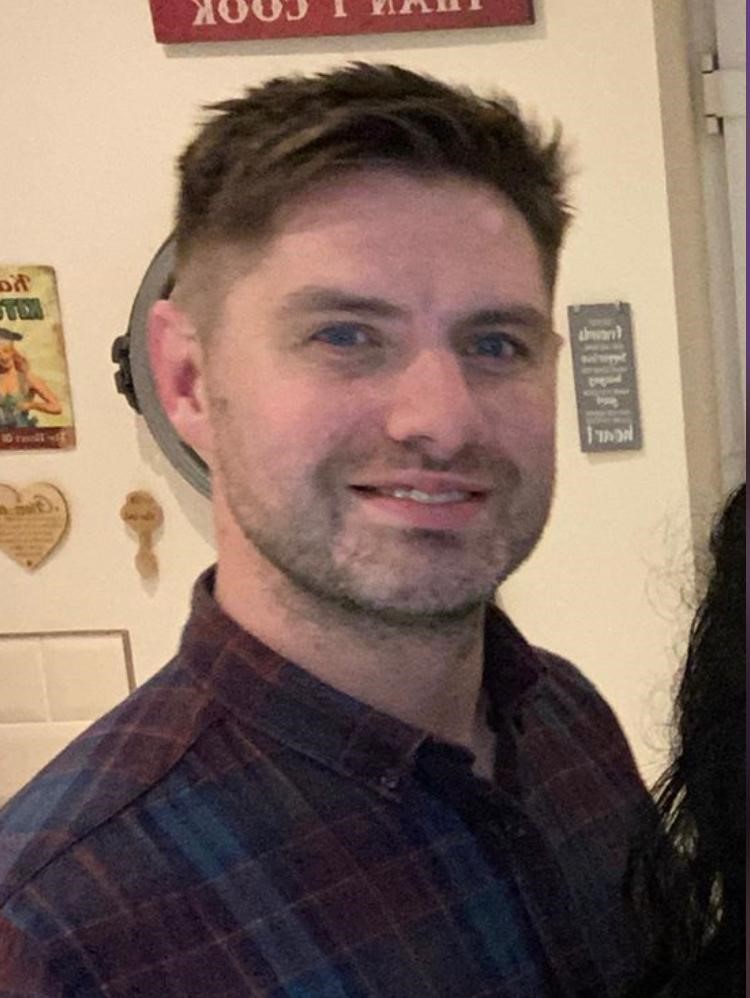Lloyds Banking Groups’ Chris McQuoid: ‘Being able to be me allows people to see that it’s okay’
In partnership with myGwork.

If there’s one person who understands the importance and significance of being able to be yourself at work, it’s Chris McQuoid. As a Senior Manager within Legal in Legal Practice Management at Lloyds Banking Group, he is not only responsible for looking after that area of the company’s risks and finances, he’s also the LGBTQ+ lead for that aspect of Lloyds too.
“My job involves budget management, looking at how we spend money with external law firms and at managing our risk profile,” he explains. “But I also do a lot of work with the law firms that work with us when it comes to challenging the status quo. I’ll do panels with law firms about LGBTQ+ issues, and I know that some law firms have set up specific divisions to look at LGBTQ+ rights all over the world, so it’s quite interesting to be a sounding board for those types of things.”
Advocating for LGBTQ+ people in his field, and being a visibly queer person while doing it, is important to Chris. Not only does it reassure customers and any LGBTQ+ colleagues that the people at Lloyds are representative of the wider world, but it’s also a way of removing the stigma and shame that some LGBTQ+ people may feel.
This is something that Chris understands first-hand. Growing up in Northern Ireland, Chris says that his background was very religious; being gay was something that just felt foreign to him.
“Anything that you would see on TV was at odds with who I am,” he recalls. “I play rugby, I did athletics and football. The more camp and flamboyant men I would see on TV were not something that I could connect to. Also, growing up in Northern Ireland, there were also a lot of slurs used. You just wouldn’t have wanted to be gay. I didn’t know anyone who came out at school, and I went to school with 1,600 kids. It’s not like I went to a small school. In fact, two girls came out in the year above me and one boy, and their lives were hell.”

Nevertheless, Chris knew that he was attracted to boys, although many others do, he hoped it would just be a phase. Heading off to university, he mostly remained in the closet, “although I was going to gay clubs, I still had a very separate life when it came to my family,” he says. “I was even in my Christian union at university and stuff like that, and then going to gay clubs on my own on the quiet.”
What blew Chris’s world wide open was meeting his now husband, Gary. While his family were still unaware of his sexuality, Chris, now graduated from university, decided that it just made sense to be out at work. “In fact,” he adds, “work was actually a safe space for me to be myself. It just felt like the right thing to do.”
Chris’s parents did, eventually, find out about Gary. “We had been together for six months and that’s when I was challenged to go to ‘conversion therapy’,” he says. “There are levels to it and there are people who have horrendous stories around conversion therapy. Mine was more counselling based where someone would evaluate me at the end. Fundamentally, I went back into the closet to my family. It was easier to keep that there and then Gary and I moved away to live together.”
It’s been 15 years since the pair relocated to Hove, on the UK’s south coast, and 10 years since Chris has been working at Lloyds. In that time, he’s been very involved with the company’s LGBTQ+ network, Rainbow, and has seen the company’s LGBTQ+ inclusion only get better and better.
“We’ve certainly been on a journey since I joined,” Chris says. “Our LGBTQ+ network has exploded. I remember when we had 600 members, which was a huge deal. Now we have over 10,000 members. It’s a sign of how far we’ve come. We have the Role Models list, which has been going on for four years. I’ve facilitated leadership courses in line with Stonewall. There are so many opportunities and I do see it now as being a place where I would hope that a lot of queer people would feel safe. They have visible role models and allies that they can see.”
Chris gives the example of one friend and colleague who came out in his late-50s. “Without the opportunity to talk about his partner, he just didn’t,” Chris says. “He came out to me and it’s things like that which help me see that it has changed over the last 10 years, very much for the positive. We’re even challenging some of the norms of the products that Lloyds has while ensuring that our queer customers and colleagues have the same access to things as cishet people.”

Intersectionality has also been a priority for the Rainbow network. “It’s not just about ticking boxes because it’s the right thing to do, either,” he adds. “It’s about being proactive and understanding the different needs of different communities, such as bringing gender-affirming medical care into our offerings for our colleagues. It’s changed so much for the better.”
The network recently held a number of events for Pride month, including hosting talks with Olympic gold medallist Tom Daley and Keegan Hirst, the rugby lead player who came out publicly in 2015. “And a couple of months ago, when we were talking about ‘conversion therapy’,” Christ continues, “we had a trans person come in and talk about what it felt like to be a trans person who had experienced ‘conversion therapy’.”
For Chris, being able to talk about his own experiences with ‘conversion therapy’, as well as the realities of growing up LGBTQ+ in Northern Ireland, which he says is “perhaps behind the rest of the country when it comes to LGBTQ+ rights”, has provided him with an opportunity to show people that there are safe spaces.
“We have a generation that are growing up better off than I did, but it’s important to look to people who are older, too, because they’re the ones who may have been in the closet for a long time or who aren’t that comfortable coming out. Being able to be me allows people to see that it’s okay,” he says. “That’s really important to me. It helps remove stigma. I think things have obviously gotten better and have improved, but I think we can forget the people who have gone through worse.”
Learning to fully accept himself has been a long journey for Chris. In fact, he says that it wasn’t until he and Gary became engaged, and he told his parents that they were getting married that he felt fully comfortable with who he is.
Gary and Chris have been married for three years now. In fact, his parents came to the wedding. He says that they’re supportive now. “I think that we realised that the time that had been missed was not worth it,” he says. “It took a while for them to come around, but I understand that they are both born-again Christians and that their faith has a certain approach to things. My dad is actually very challenging to his own church about things like that. It’s a slow journey, but it’s very important to meet people where they are and have those conversations.”
By sharing his story, Chris ultimately wants queer people from all different walks of life to know that there are spaces where they can live authentically. “Having visible role models is so important,” he says. “You have to be able to be out there. It’s just being able to recognise the people that are out and being vocal.”
Lloyds Banking Group is a proud partner of myGwork, the LGBTQ+ business community. Find out more about job opportunities at Lloyds Banking Group here.
